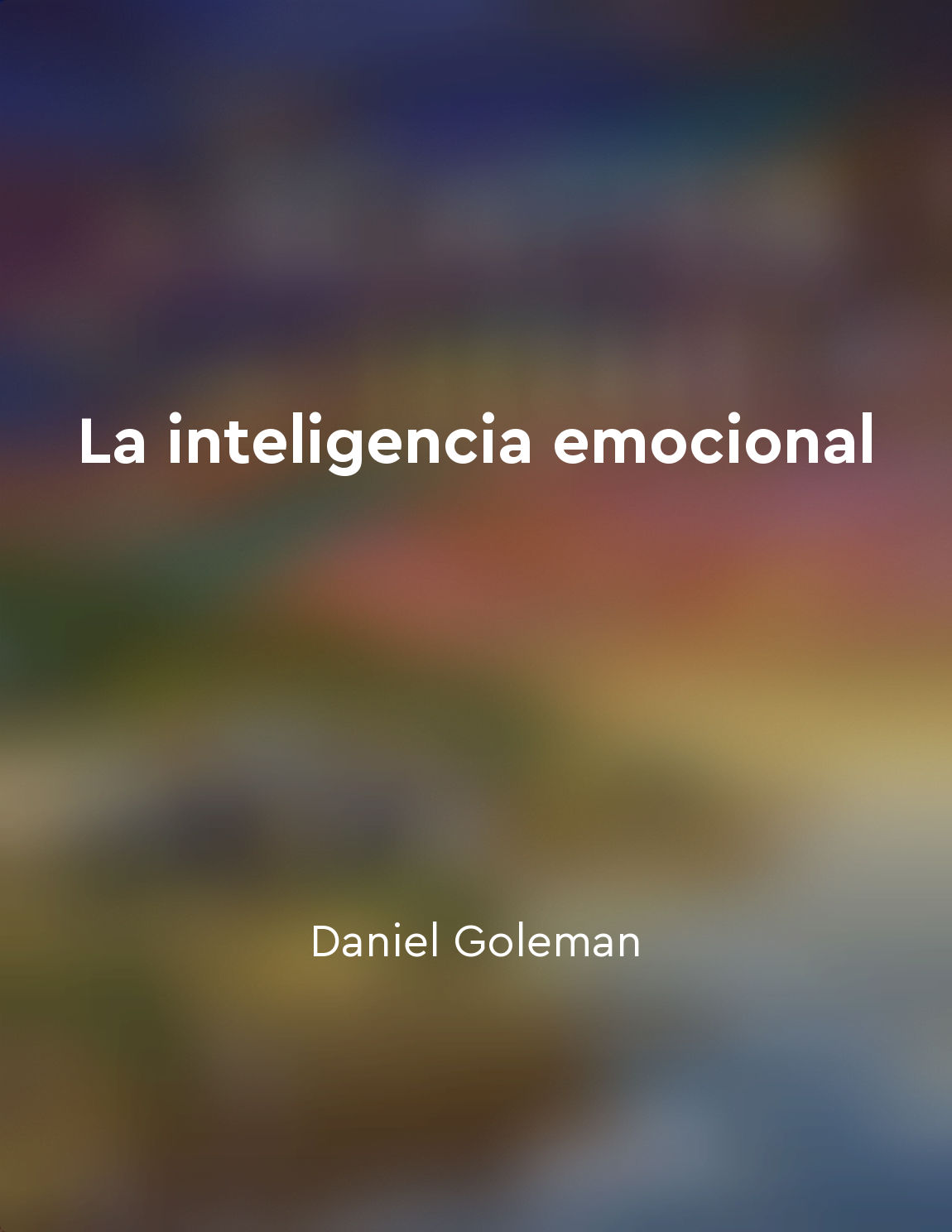Audio available in app
Cultivate selfawareness and emotional intelligence from "summary" of Beyond Anger by Thomas Harbin
Developing an understanding of oneself is a crucial step in managing anger effectively. By cultivating self-awareness, we can identify our triggers, emotions, and patterns of behavior that lead to anger. It involves taking a close look at our thoughts, feelings, and reactions in various situations to gain insight into why we behave the way we do. Emotional intelligence is another important aspect of anger management. It refers to our ability to recognize, understand, and manage our own emotions, as well as the emotions of others. By developing emotional intelligence, we can better regulate our emotions, communicate effectively, and empathize with others. To cultivate self-awareness and emotional intelligence, we must first become more mindful of our thoughts and emotions. This means paying attention to our internal experiences without judgment or criticism. By observing our thoughts and feelings in a non-reactive manner, we can gain a deeper understanding of ourselves and our emotional responses. It is also helpful to practice self-reflection and introspection regularly. By taking the time to reflect on our experiences, behaviors, and emotions, we can uncover underlying issues that contribute to our anger. Journaling, meditation, and therapy are all effective ways to promote self-reflection and increase self-awareness. In addition to self-awareness, developing empathy is essential for enhancing emotional intelligence. Empathy allows us to understand and share the feelings of others, which can help us navigate interpersonal conflicts and improve our relationships. By practicing empathy, we can become more attuned to the emotions of those around us and respond with compassion and understanding.- Cultivating self-awareness and emotional intelligence is a continuous process that requires introspection, self-reflection, and practice. By increasing our awareness of ourselves and our emotions, we can gain better control over our anger and respond to challenging situations in a more constructive and adaptive manner.
Similar Posts
Understand the importance of ethics in business
Ethics in business is crucial for maintaining trust and credibility with customers, employees, and other stakeholders. When a b...
Mindfulness practices can positively impact brain structure
Mindfulness practices involve paying attention to the present moment without judgment. This state of awareness can lead to posi...
Empowering students to become independent thinkers
The idea of empowering students to become independent thinkers is a fundamental principle in education. When students are able ...

Nonverbal communication can convey powerful messages
Nonverbal communication is a form of communication that does not involve the use of words. It includes facial expressions, body...
Developing emotional intelligence involves recognizing patterns in emotions
Recognizing patterns in emotions is a key component of developing emotional intelligence. It involves being able to identify co...

Recognizing and understanding emotions in others is a powerful skill
Recognizing and understanding emotions in others is a crucial skill that can greatly impact our interactions and relationships....

Emotional intelligence allows us to connect with others on a deeper level
Emotional intelligence enables us to forge meaningful connections with those around us by allowing us to understand and manage ...
Emotions can influence behavior and decisionmaking
Emotions play a significant role in shaping our behavior and decision-making processes. When we experience strong emotions, suc...

La visualización creativa puede llevarlo al éxito
Visualizar es una herramienta poderosa que puede transformar su vida y llevarlo al éxito. Al visualizar de forma creativa, uste...

Embrace compassion as a core value
Compassion is a core value that can transform our lives and our relationships with others. When we embrace compassion, we open ...


